Friday, April 14, 1865, 10:20 PM; Ford's Theater, Washington D.C.
Asa: [to the audience] This gal and the old woman are trying to get me on a string.
7 AM, Earlier
3 PM
10:25 PM
Augustine: What, no fortune?
Asa: Yes, you both look tickled to death.
Aug: Yes, ma, the nasty beast.
Mrs M: I am aware, Asa, you are not used to the manners of good society, and that, alone, will excuse the impertinence of which you have been guilty.
Asa: Don't know the manners of good society, eh? Well, I guess I know enough to turn you inside out, old gal-- you sockdologizing ...
"Sic Semper Tyrannis!"
"(W)hile I was intently observing the proceedings upon the stage, with my back toward the door, I heard the discharge of a pistol behind me, and, looking round, saw through the smoke a man between the door and the President. The distance from the door to where the President sat was about four feet." - Henry Rathbone
"I then turned to the President; his position was not changed; his head was slightly bent forward and his eyes were closed. I saw that he was unconscious, and, supposing him mortally wounded, rushed to the door for the purpose of calling medical aid." - Henry Rathbone
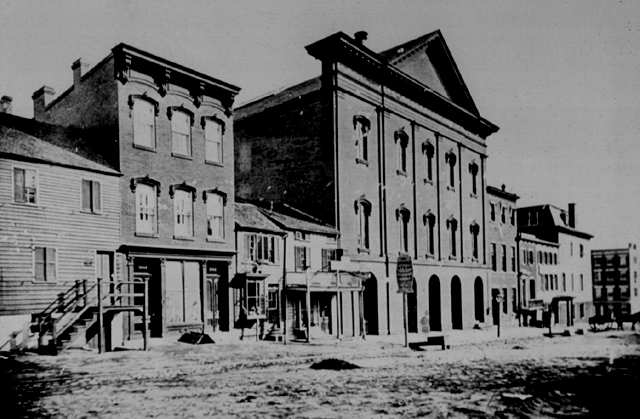
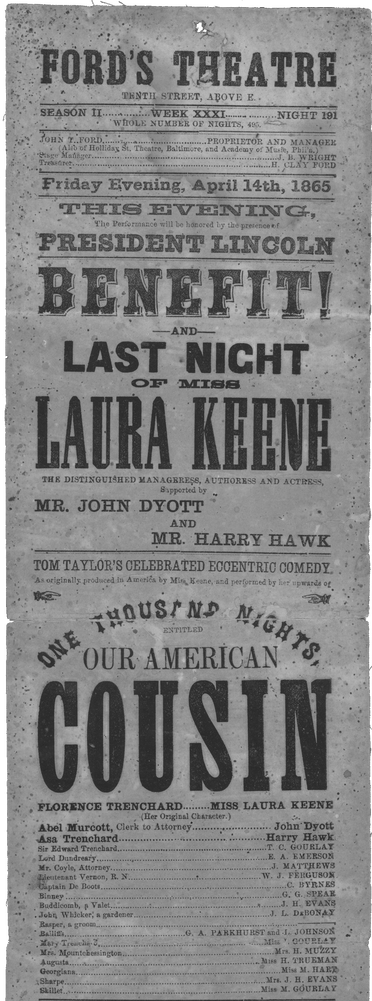
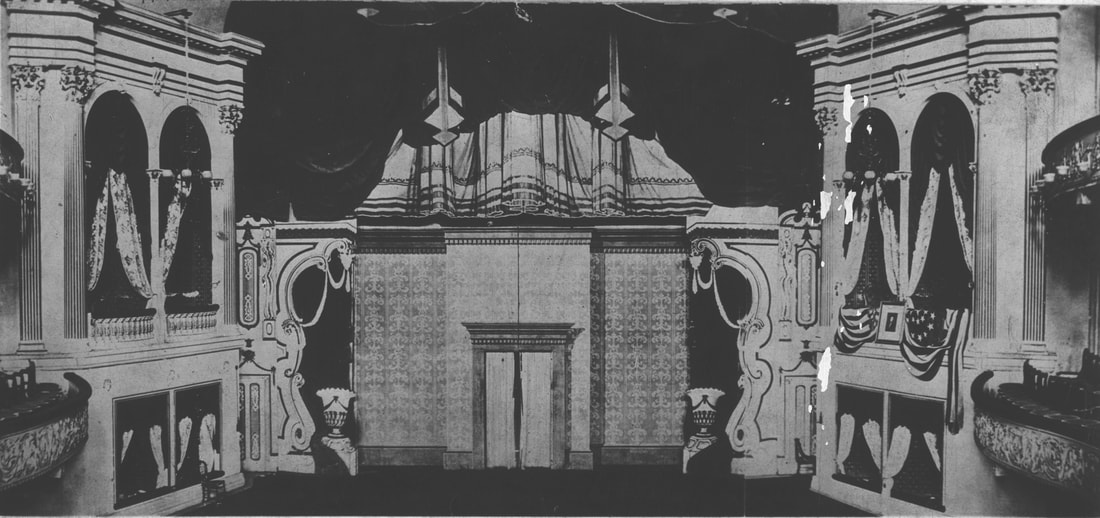
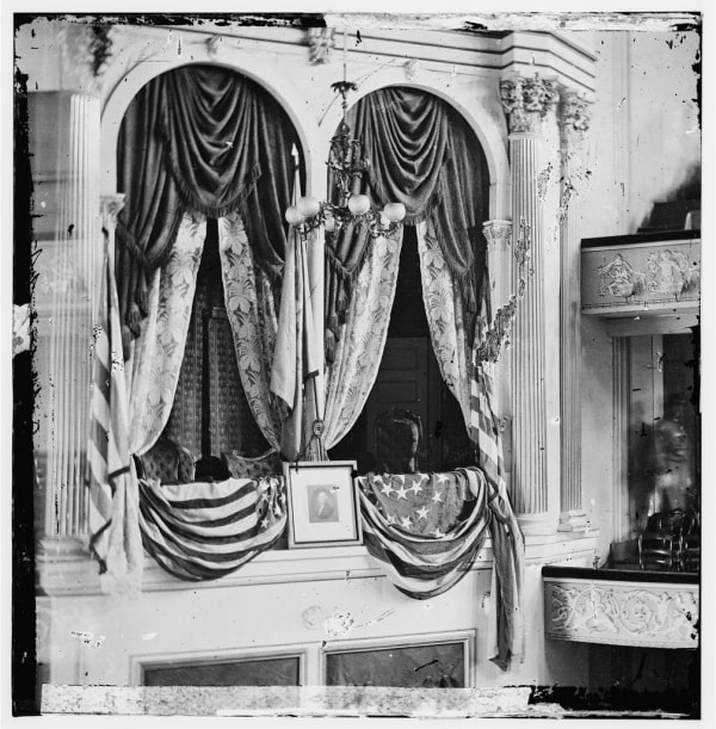
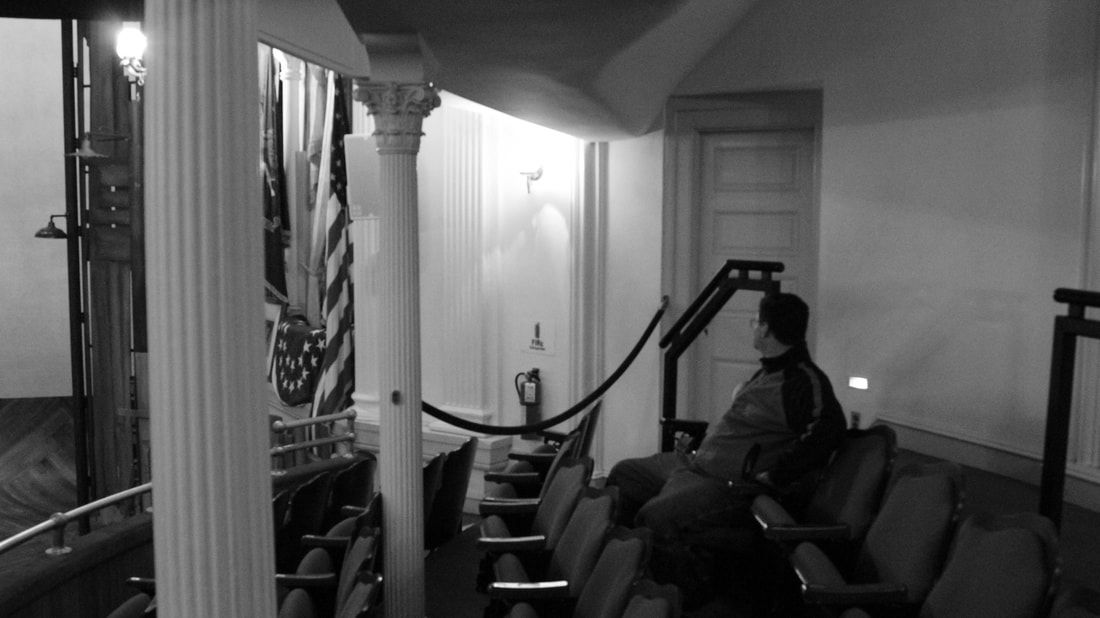
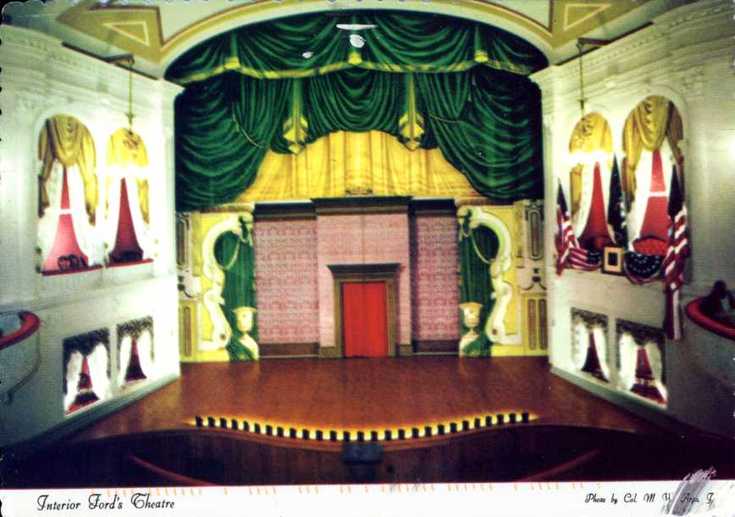
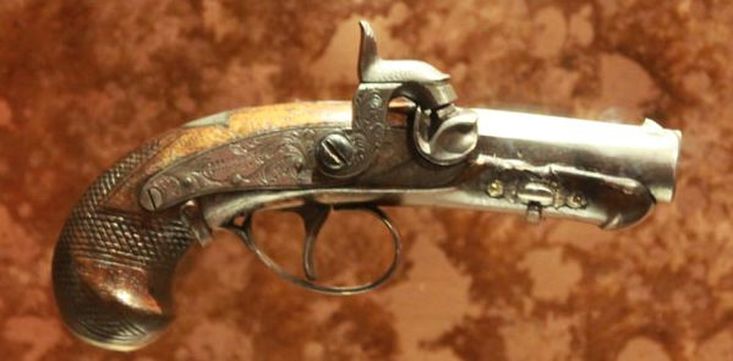
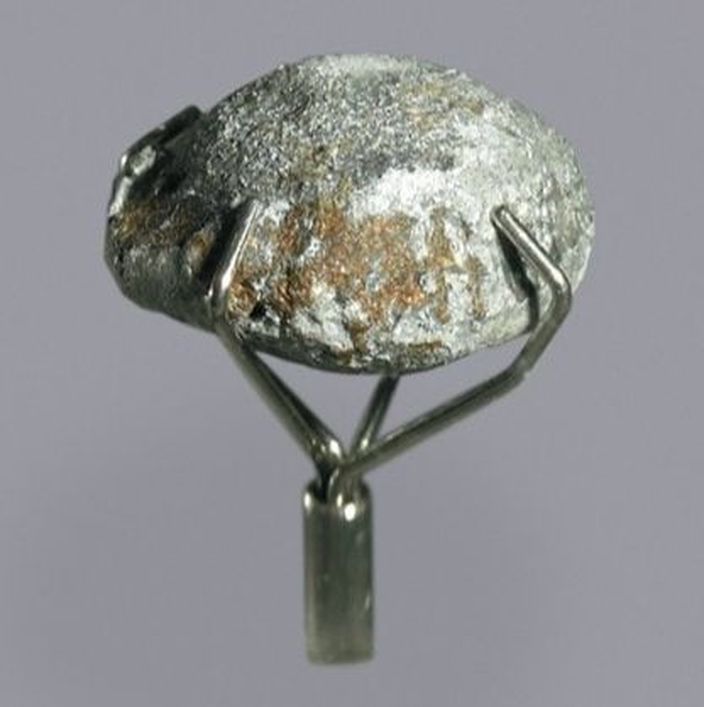
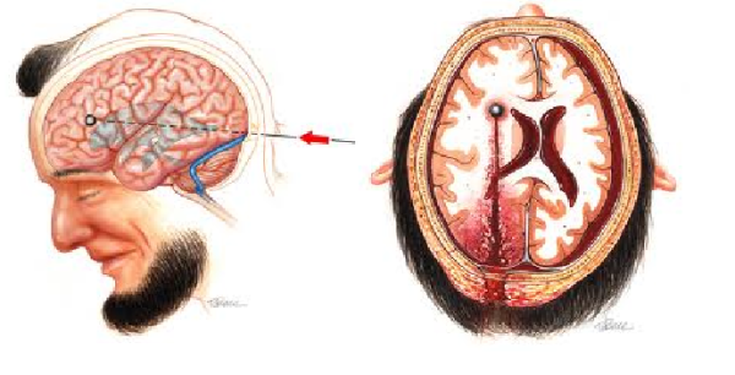
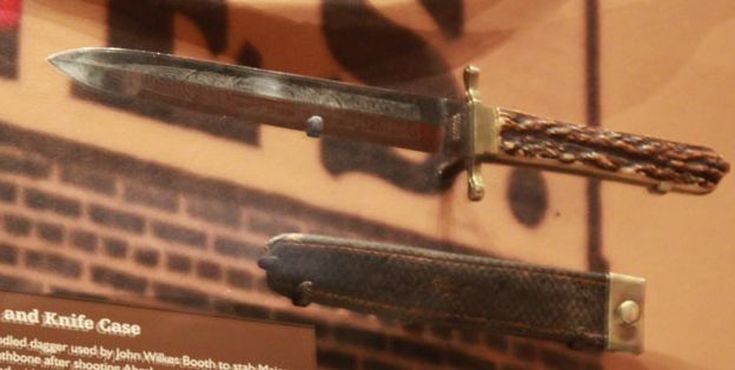
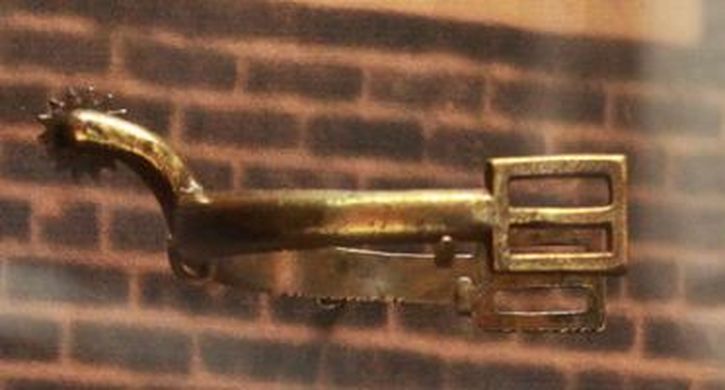
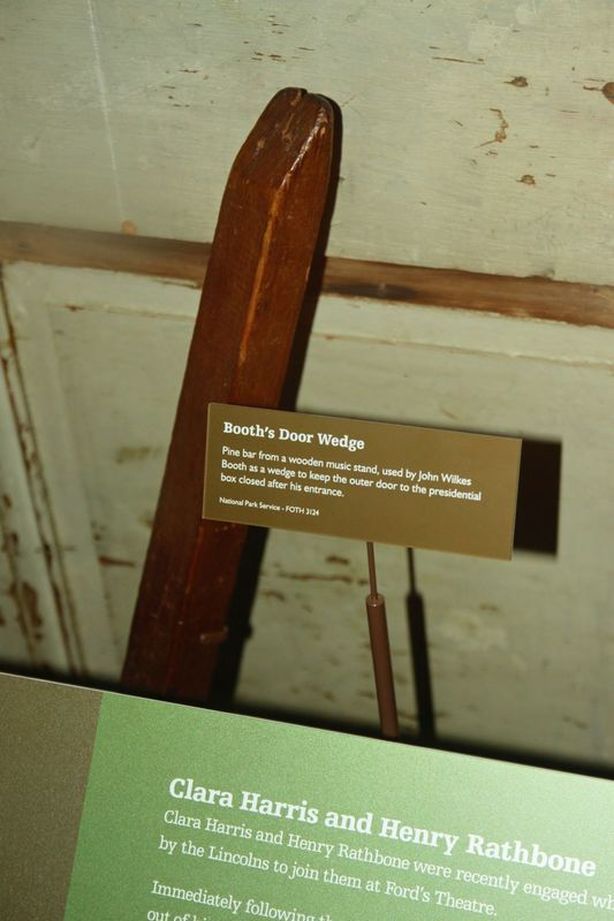
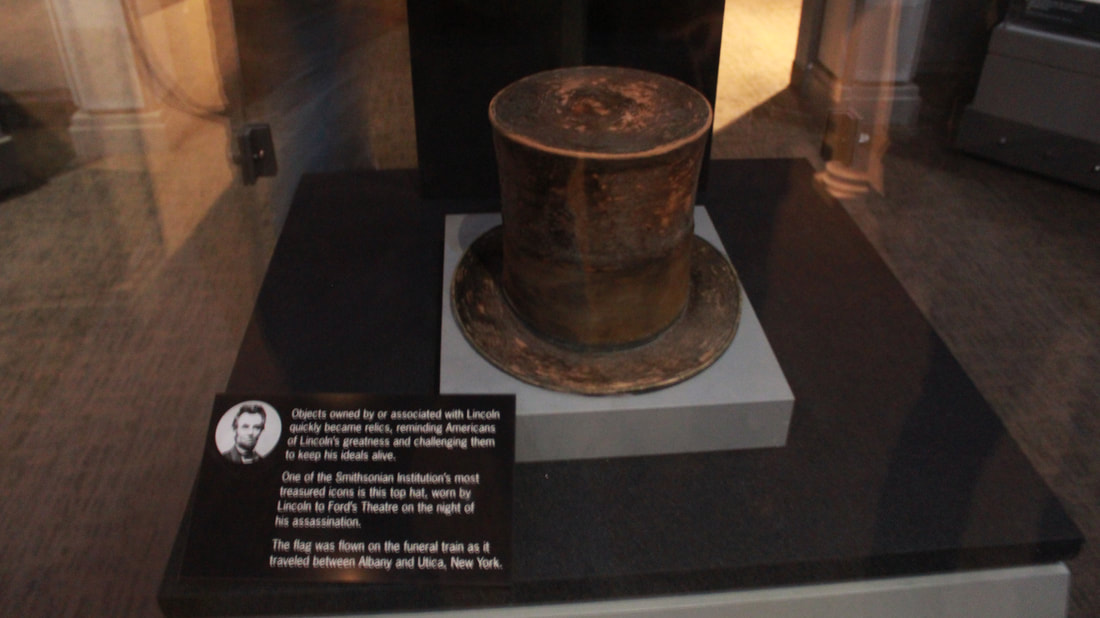
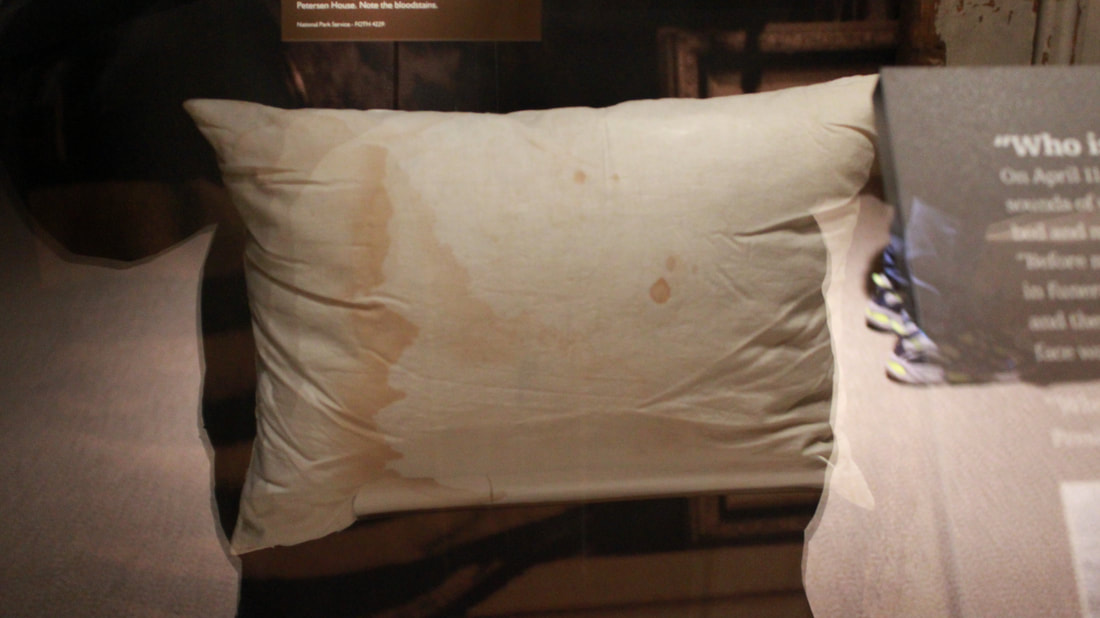
 RSS Feed
RSS Feed